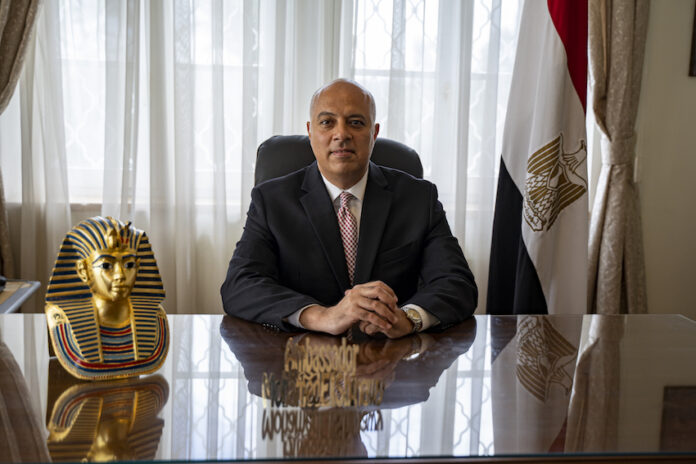Interview with H.E. Mohamed El Shinawy, Ambassador of the Arab Republic of Egypt to Hungary
Edited by Anna Popper
Photos by Vilmos Kortye
Your Excellency, may I ask how You feel in Hungary since You arrived here? Did Your experience meet Your expectations and what impressed You the most?
– Hungary is one of the most distinguished European countries. It is a country of culture, history and civilisation. When I arrived to Budapest in September 2021, I was very much welcomed and felt at home. Budapest is a very impressive city, its architecture is unique and well maintained. It has nice outings, restaurants, spas, museums, touristic sights, as well as shopping malls and centres. Moreover, the public transportation in Budapest is very efficient.
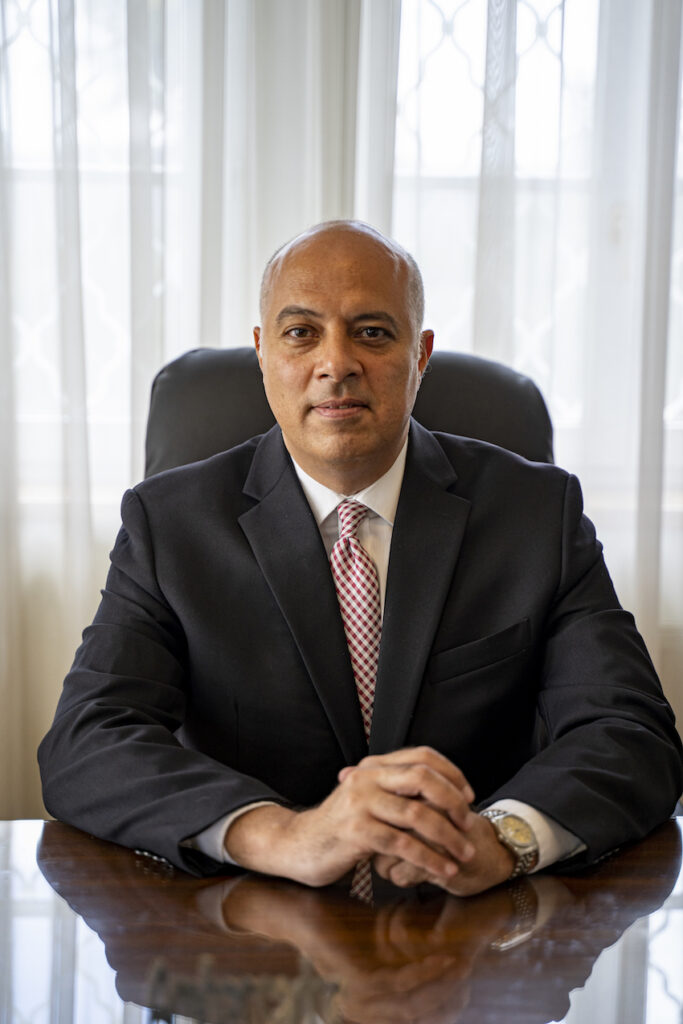
Egypt recently marked the 70th anniversary of the 1952 Revolution, which is considered a National Day and is observed annually. How was the celebration organised in Budapest?
– The celebration of the 70th anniversary of the Revolution of 1952, the National Day of Egypt, was organised this year in the Museum of Military History, one of the most prestigious museums in Budapest. The reception was attended by H.E. Dr Zsolt Semjén, Deputy Prime Minister as Guest of Honour and Dr Péter Sárdi, State Secretary, Director of Foreign Relations of the Hungarian National Assembly, as well as foreign ambassadors serving in Hungary and representatives of the Ministry of Foreign Affairs and other ministries, the Hungarian Parliament and other Hungarian authorities, culture and private business sector and media, also Egyptian-Hungarian citizens living in Hungary, and Egyptian students who are studying at Hungarian universities within the framework of the Stipendium Hungaricum Program. During the reception, H.E. Dr Zsolt Semjén and myself delivered statements emphasising the importance of bilateral relations and strong ties between Egypt and Hungary in various fields and aspects.
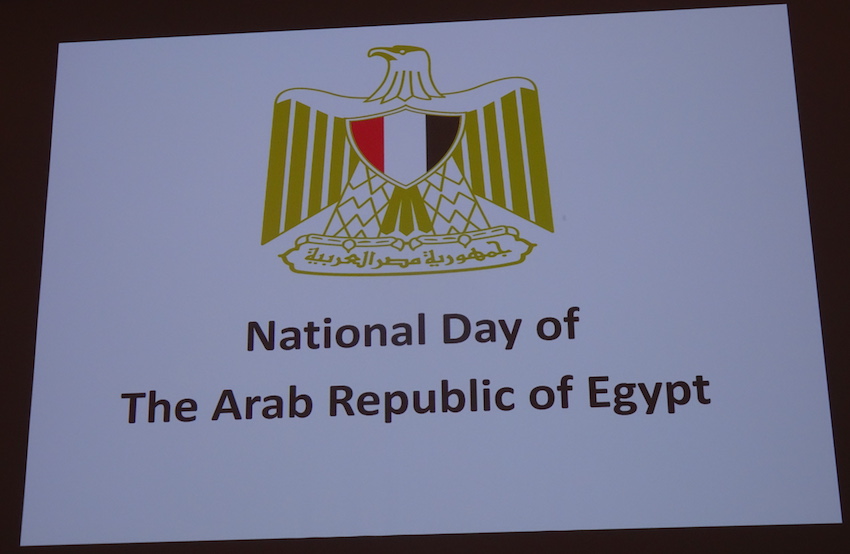
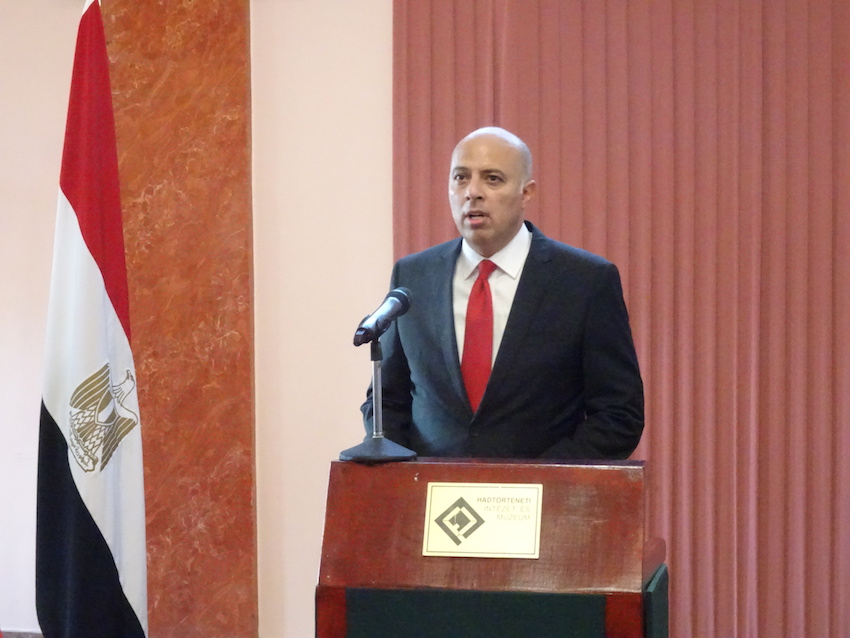
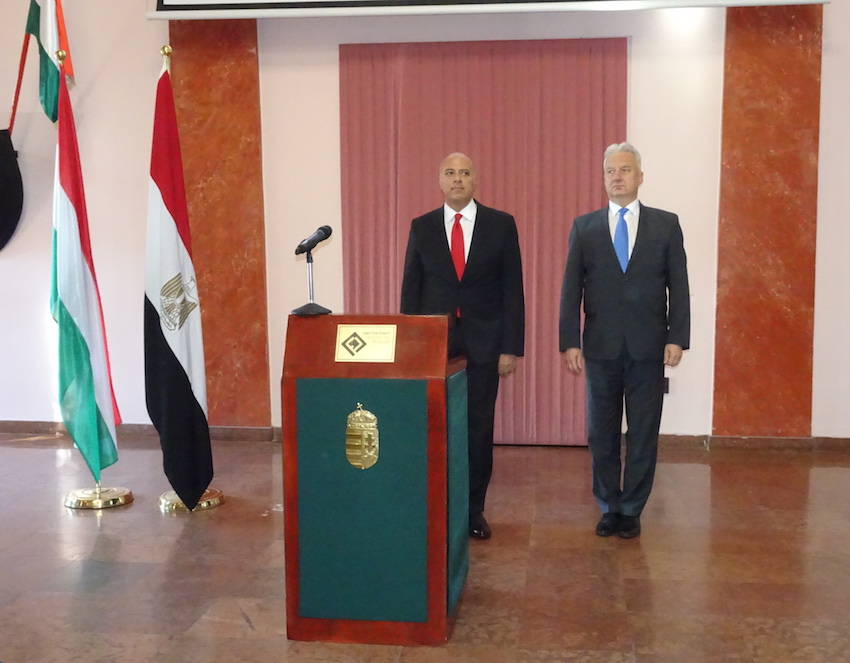

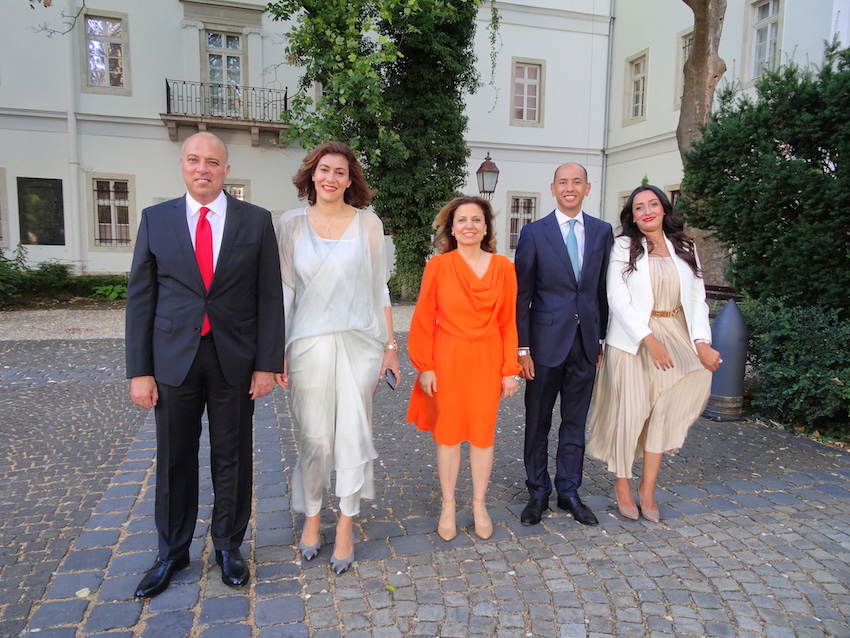
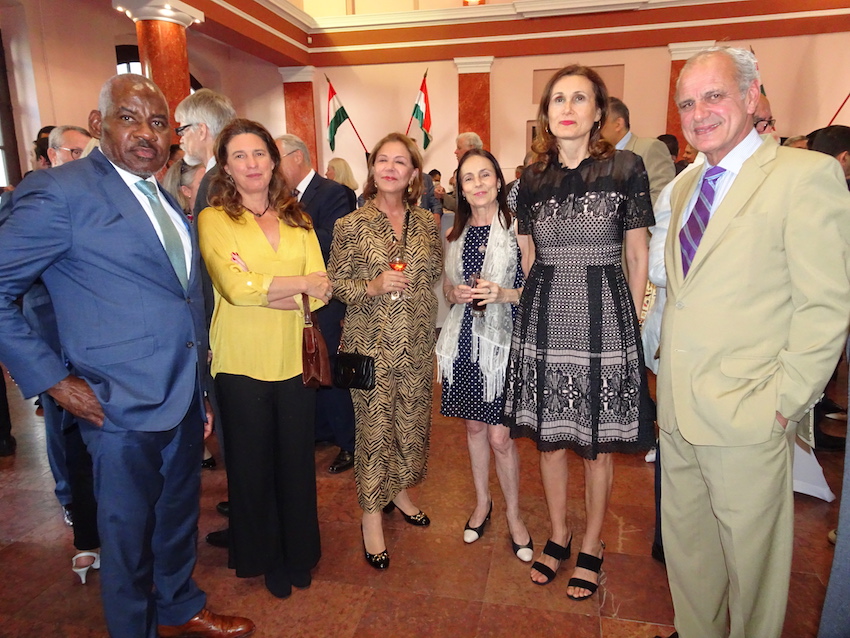
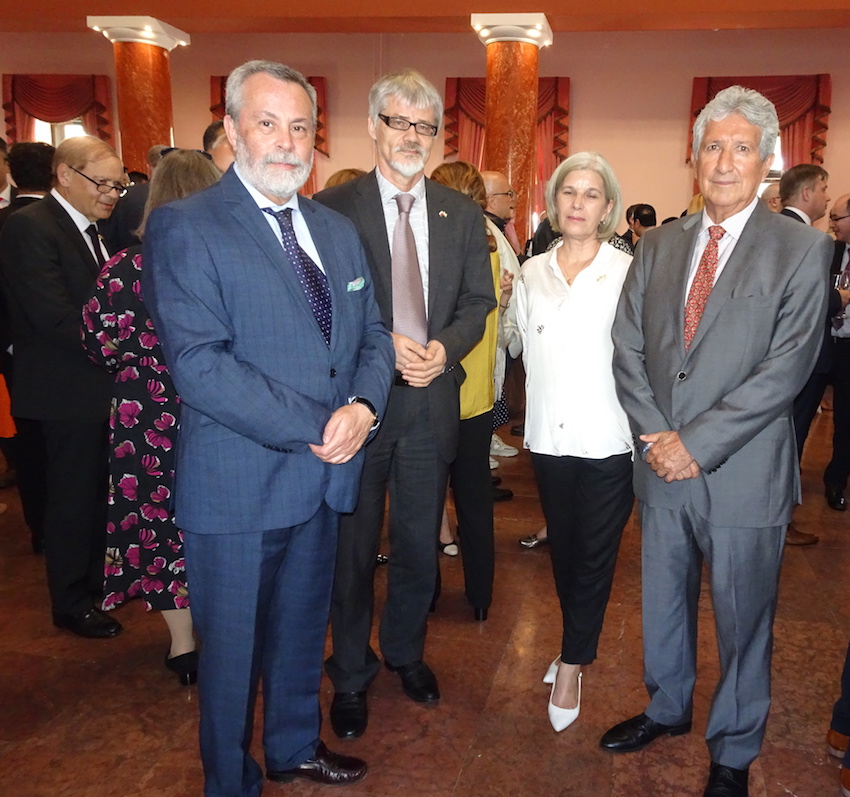
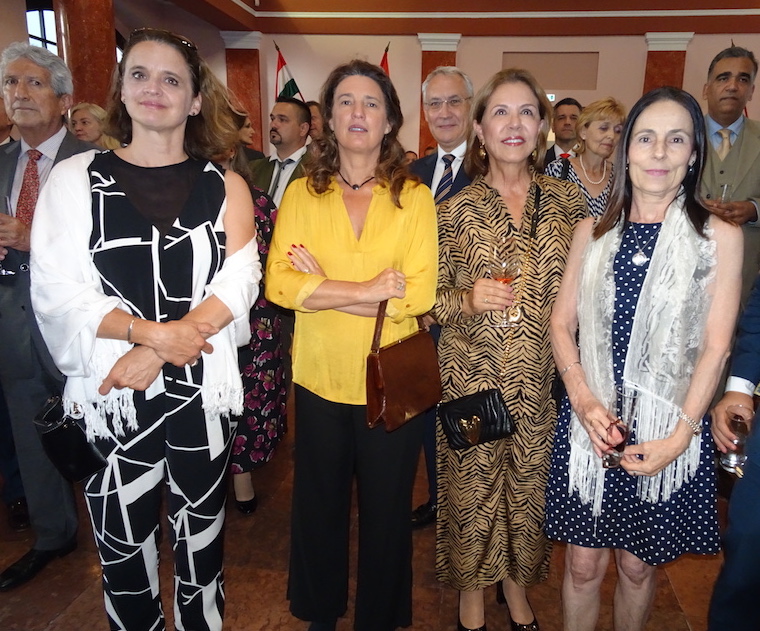
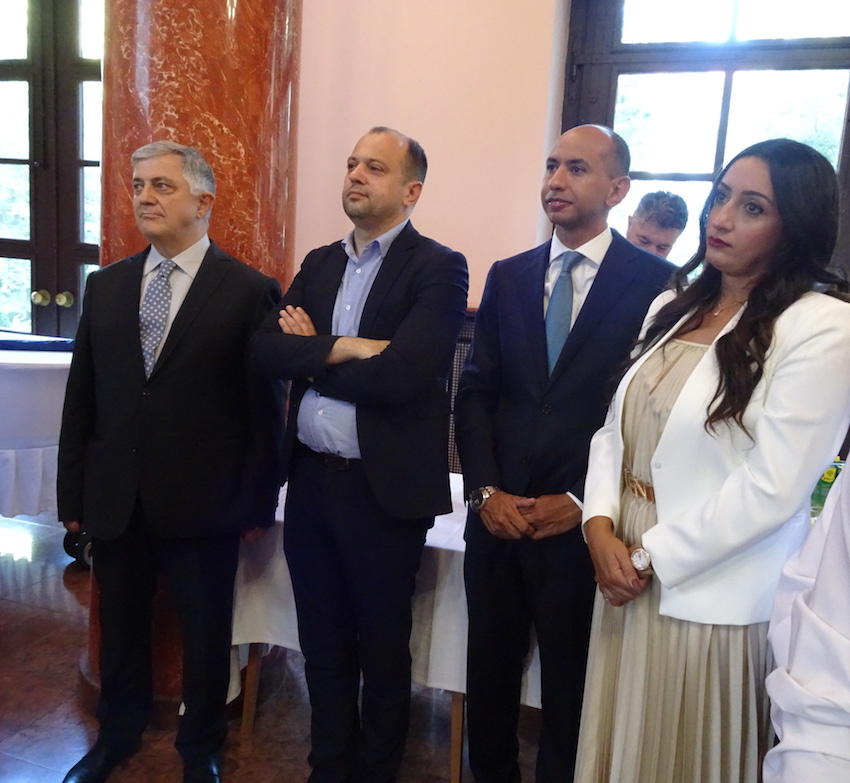
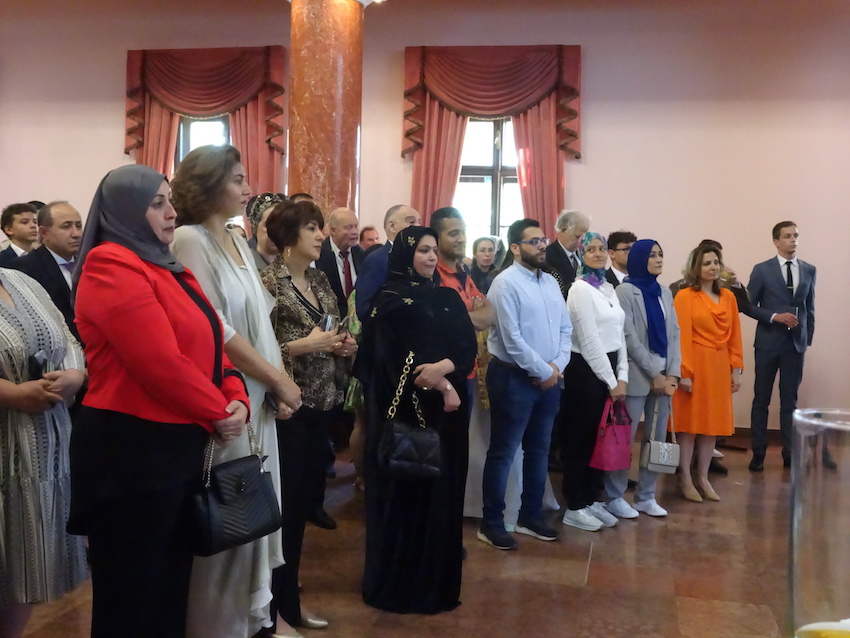
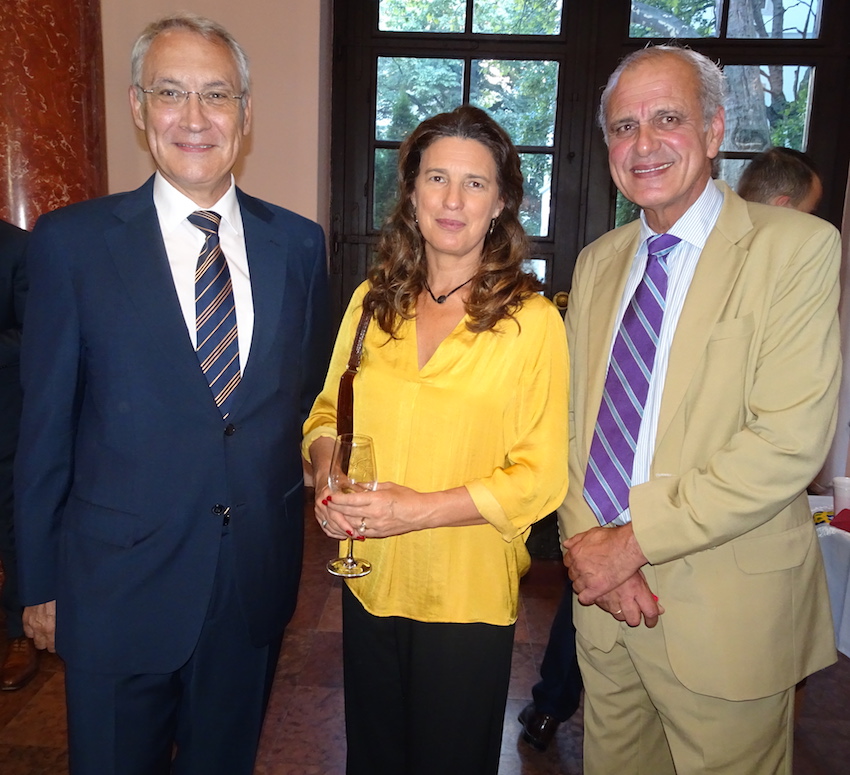
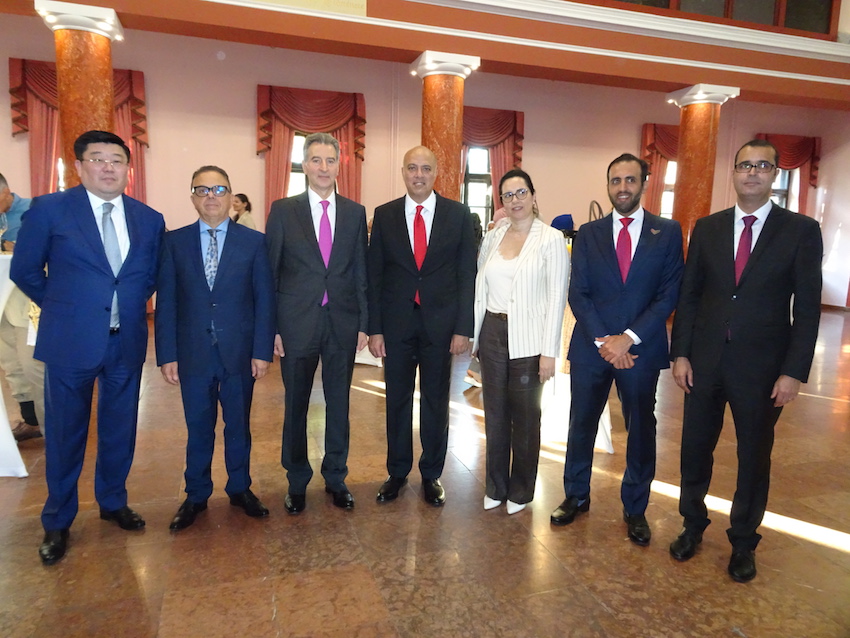
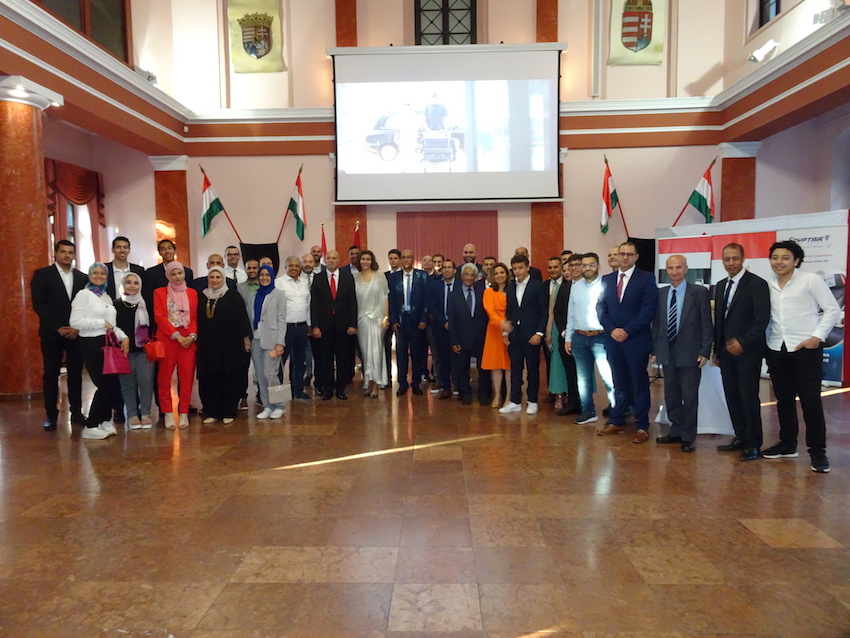
The Revolution created the modern Republic of Egypt, ending the period of the Egyptian Kingdom. In Your opinion, what are the major accomplishments of Egyptian society over the last seven decades?
– We also celebrated the 9th anniversary of the June 30, 2013 Revolution that restored the Egyptian state’s national identity and was the beginning of an unprecedented renaissance and building process in Egypt.
Egypt is a developing country that has been working over the last seven decades to rebuild its infrastructure, improve the level of services provided to Egyptian citizens, attract foreign direct investments, increase the land allocated for agriculture, encourage industrialisation in Egypt, and improve and elevate the political atmosphere and human rights.
How do You assess the evolution of relations between Egypt and Hungary?
– The Egyptian-Hungarian relations are very strong and have reached the level of a strategic partnership. These relations are divers and cover a wide spectrum of fields, including agriculture, water issues, transport, energy and gas, education, trade and industry, tourism, as well as security and political coordination. I can add in this regard that the bilateral relation between Egypt and Hungary is evolving and that a momentum was created by the visit of H.E. President Abdel Fattah El-Sisi to Hungary in October 2021. The high-level visits of the Egyptian Hungarian officials to Budapest and Cairo give a boost and a positive push to bilateral relations between the two countries, which definitely serve our mutual interest. Egypt and Hungary have common understanding on most issues, including counter-terrorism, illegal immigration, respecting the sovereignty of each state and the international law.

Would You please describe the political-economic situation of Your country?
– The political situation in Egypt is stable and the Egyptian economy is growing. The security situation in Egypt is perfect. Moreover, Egypt has managed to overcome the COVID crisis very successfully. Around 37% of the Egyptian population, who are exceeding 100 million citizens, are vaccinated. Furthermore, we are producing various types of COVID vaccines to ensure that all Egyptians and those living in Egypt could be vaccinated, and to be able to provide vaccines to other countries, especially in Africa. The Egyptian economy is based on a number of sectors, including industry, agriculture, Suez Canal, trade, energy & gas and tourism.
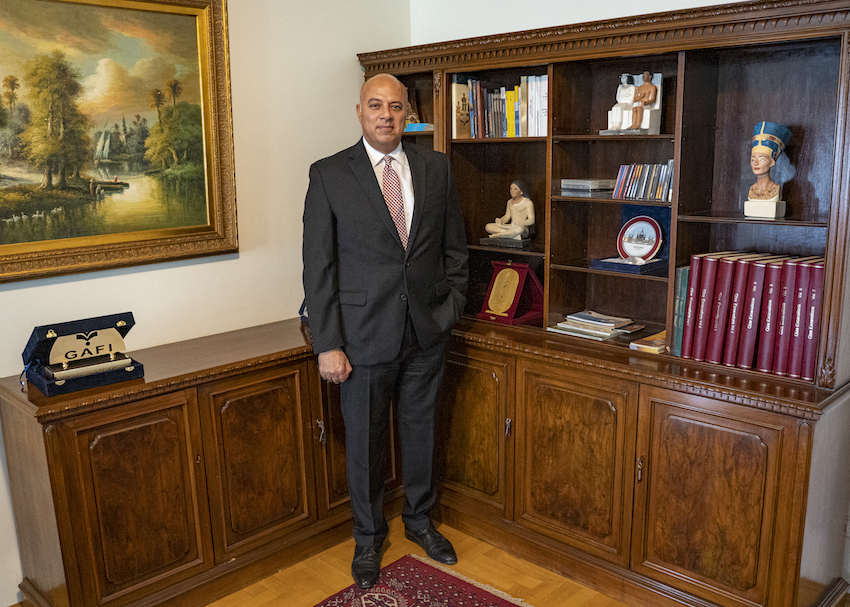
One of the strategic sectors of the Egyptian economy is tourism. And for Hungarians Egypt is one of the most popular travel destinations.
– Tourism is very important for Egypt. Revenue from tourism represents around 12% of Egypt’s GDP, and the tourism sector provides around 9.5% of the total workforce. We know that the main goal of Hungarian tourists heading to Egypt is to visit the Red Sea (Hurghada and Sharm El Sheikh). And despite the fact that these two spots are among the top touristic destinations worldwide, we still have a lot of beautiful places which deserve to be visited.
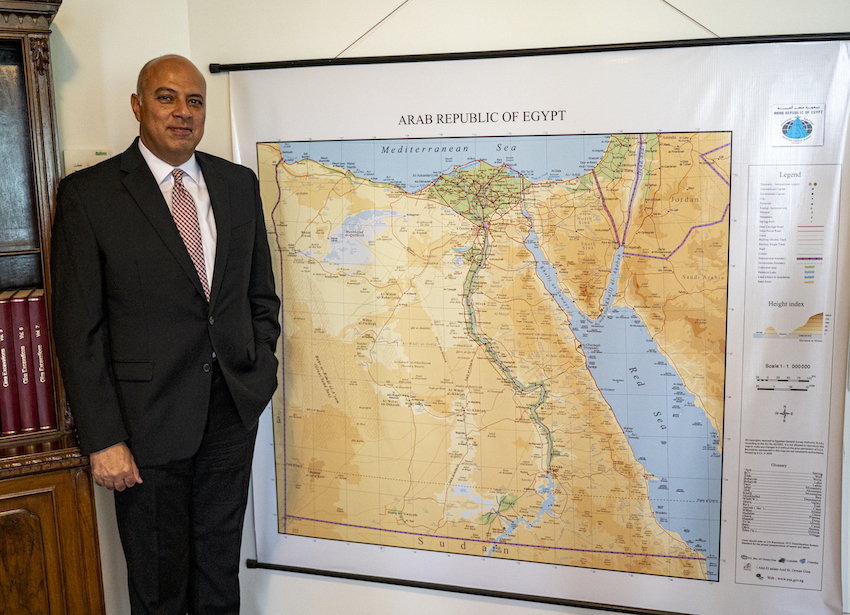
Accordingly, I invite the Hungarian citizens to visit – besides Hurghada and Sharm El Sheikh – other distinguished touristic destinations in Egypt, including Luxor, Aswan and the other cities and places in Egypt that are home to Pharonic, Greek and Roman monuments. I would also like to highlight the 1000-km-long Mediterranean coastline in the north of our country with beautiful beaches of deep blue water and white sand. The coastal cities and extraordinary seaside resorts, such as Marsa Matrouh and Agiba are marvellous destinations for international tourism.
It is also worth visiting our unique environmental sites including Wadi El Rayan, Ras Mohamed and Wadi Al-Hitan, the famous Whale Valley, which are among the most prominent UNESCO World Heritage sites.
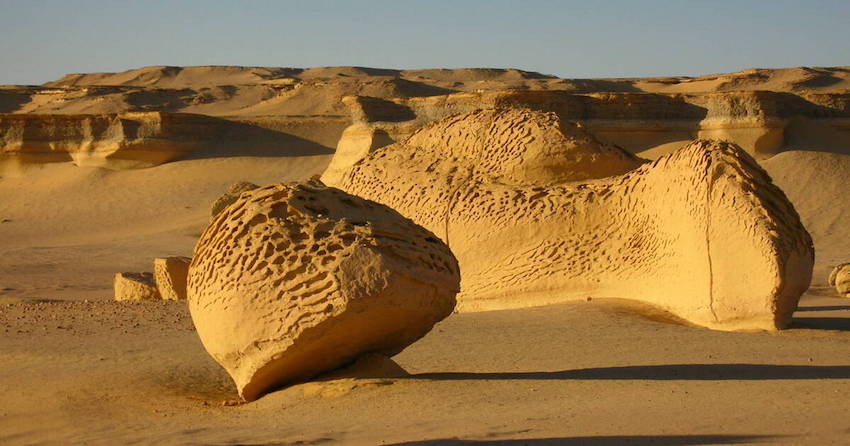
Moreover, in Egypt we have a number of hot springs and springs with mineral and sulphuric water. In addition, Egypt has several religious sites and monuments, Islamic, Christian and Jewish, including of course the citadels that we have in Cairo and Alexandria and the sites that record the path of the Holy Family.
Cairo and Luxor hosted in 2021 two major cultural and touristic events, namely the opening of the National Museum of Egyptian Civilisation in Cairo and the Reopening Ceremony of the Pharaonic Rams Road, connecting the Temples of Karnak and Luxor.
Another great event that should take place in Egypt this year, hopefully in November 2022, is the opening of the Grand Egyptian Museum (GEM) at the Pyramids of Giza, that will be the largest archaeological museum in the world.
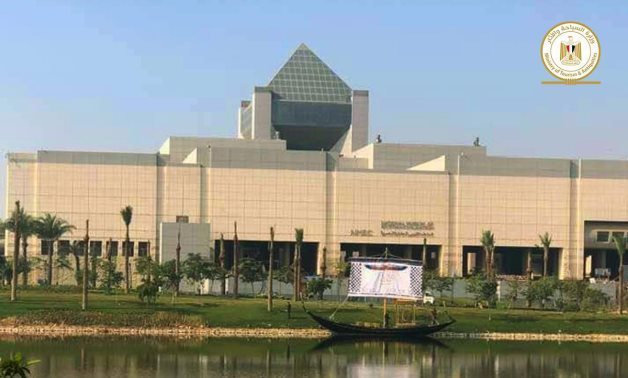

What are the priorities of the Egyptian foreign policy? Regarding its geopolitical importance, how could Egypt’s role and vocation be defined internationally and in Africa?
– Egyptian foreign policy, since President Abdel Fattah El-Sisi took office in Egypt in 2014 after the 30 June 2013 revolution, has been based on the belief that Egypt’s relationship with other countries should be based on mutual respect and non-interference in the internal affairs of States, respecting their sovereignty and independence, international law and treaties and agreements, emphasising the coherence of the national institutions of States, and the necessity to focus on the economic dimension of international relations.
Accordingly, since 2014, under the leadership of President El-Sisi, Egypt has gained the fruits of its foreign policy and activated Egyptian economic, development and environmental diplomacy, including climate diplomacy.
On the multilateral level, Egyptian foreign policy has been active through the regular participation of President El-Sisi at the annual high-level meetings of the General Assembly of the United Nations. The efforts of this active engagement culminated in the election of Egypt as a non-permanent member in the Security Council (2016-2017), and selecting Egypt as the Chair of the Counter-Terrorism Committee, the Group of 77 and the Peace-building Commission.
Egyptian-Arab relations during the era of President El-Sisi are witnessing tangible activity, especially with the Arab Gulf States, as there is a direct link between the Gulf security and Egypt’s national security.
Within this context, Egypt contributes to diplomatic efforts to settle the Syrian and Libyan crises, as well as to the efforts of supporting the Yemeni legitimacy. In this regard, Cairo reiterates its firm position to support all efforts towards a comprehensive political solution to the Yemeni crisis that achieves stability, preserves the unity and stability of Yemen, meets the aspirations of the Yemeni people, enforces their free will and ends foreign interference in the Yemeni affairs.
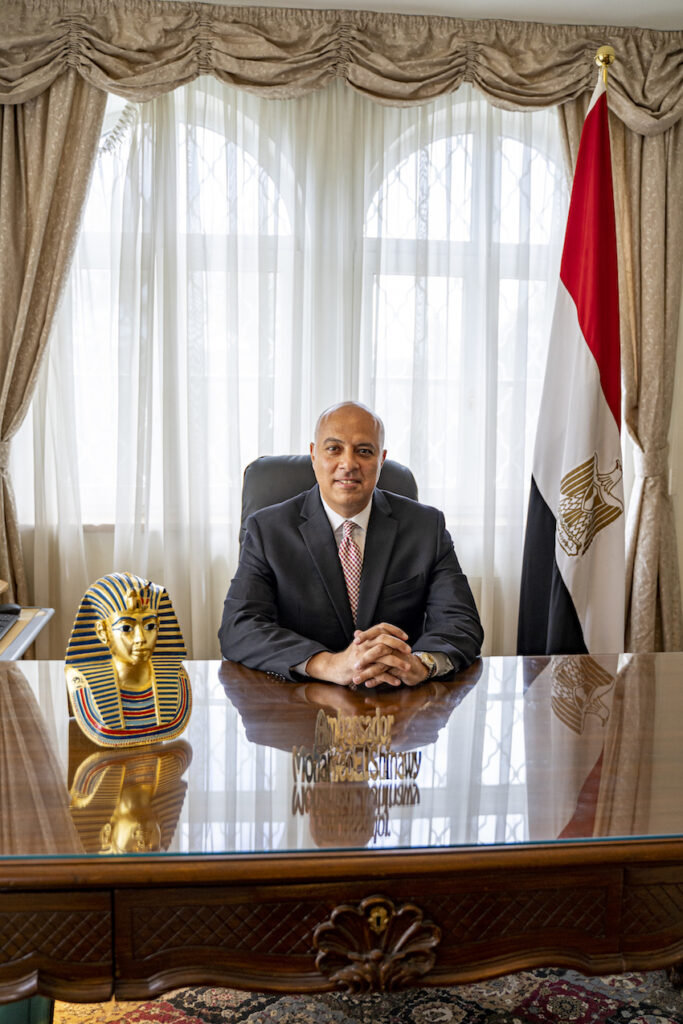
In the context of strengthening its relations with the brotherly Arab countries, a tripartite cooperation mechanism was launched between Egypt, Jordan and Iraq, and Egypt hosted its first meeting in 2019.
Likewise, Cairo has spared no effort to support Lebanon over the past eight years. In this regard, Egypt actively participated in the Conference on Supporting Lebanon organised by the United Nations, and constantly supports the Lebanese people to overcome their current crisis.
On the other hand, Egypt is keen to support the Sudanese people in overcoming the current crises in Sudan and to have a common position, especially with regard to the Renaissance Dam crisis. Within this context, Egypt has participated in the international initiative to settle Sudan’s debts, and the Egyptian Prime Minister also attended the signing ceremony of the historic peace agreement between the Sudanese government and the armed movements of the Sudanese Revolutionary Front, which was held in Juba, in October 2020.
Regarding the Palestinian issue, which lies at the top of the Egyptian priorities, Egypt’s position is well known in supporting the legitimate rights of the Palestinian people. In this regard, Egypt hosted the Gaza Reconstruction Conference in 2014 in Cairo, and launched the Egyptian Initiative for the Reconstruction of Gaza and the provision of assistance of $500 million to the Gaza Strip. Egypt is also working to resume peace negotiations between the Palestinian and Israeli sides. Egypt always affirms in all international fora that the region will not enjoy stability without reaching a solution to the Palestinian issue, and declaring the State of Palestine with East Jerusalem as its capital.
Egyptian-African relations are at the top of the Egyptian foreign policy priorities, and Egypt is keen in this context to work on the development of African countries, and the Nile Basin countries in particular. Egypt’s movements vary between political, economic, media, cultural and water movements. In the same vein, Egypt provides broad support for human development efforts in African countries, by dispatching experts and specialists in dozens of fields and receiving thousands of African cadres for training in Egyptian institutes and academies. The Egyptian Agency of Partnership for Development of our Ministry of Foreign Affairs plays a major role in this regard.
In the same context, Egypt is working to implement the African Development Agenda 2063, The Africa We Want, especially in the field of infrastructure, and is working to implement various initiatives of economic and regional integration, promoting intra-regional trade in the continent, mechanisms for preventing and settling African conflicts, and the institutional reform process of the African Union.
Egyptian-European relations are of great importance, especially in political, economic and military aspects. Europe is the largest trading partner of Egypt, and an important source of foreign investment in various fields. There are also a number of agreements and programs concluded between the two sides, including aid and grant agreements for Egypt on social and economic levels.
On the other hand, the European Union considers Egypt a pivotal country for maintaining political stability in the Mediterranean region. There are also many issues of common interest between Egypt and Europe, including counter-terrorism and extremism issues, illegal migration, asylum and energy issues, as well as issues related to freedoms and human rights. Nevertheless, the importance of the relationship between the two parties does not rule out some differences in visions regarding the previous issues.
The Egyptian-European relations have witnessed a strong boost in recent years, both bilaterally thanks to the President’s visits to numerous countries, including Germany, Italy, Great Britain, France, Hungary, Portugal, Cyprus and Greece, and multilaterally, including through the tripartite cooperation mechanism, Egypt, Greece and Cyprus, or the upgrading of relations to the level of partnership with the Visegrad countries.
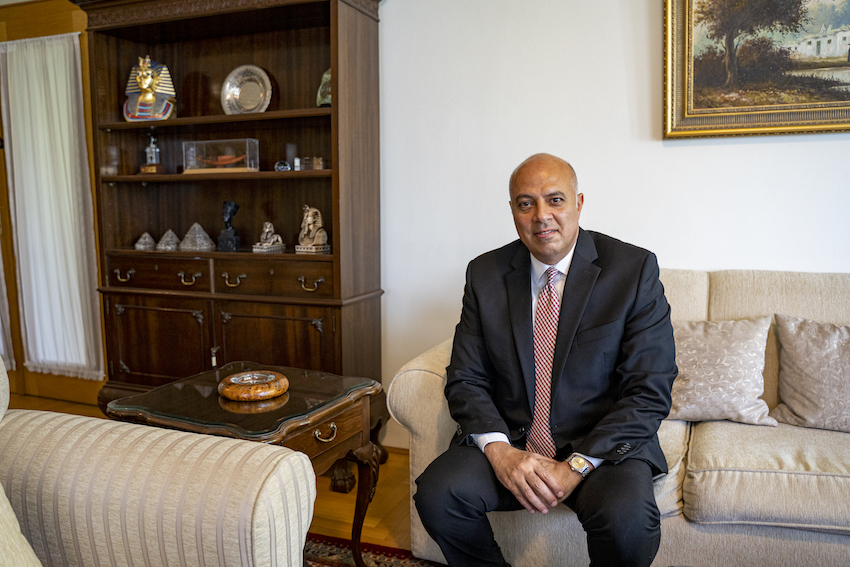
Euro-Mediterranean cooperation with the countries of the Eastern Mediterranean represents a great interest to Egypt, especially with the discoveries of natural gas that led to the transformation of the Eastern Mediterranean into a major strategic and economic area, and new partnerships began to appear in it, including the establishment of the Eastern Mediterranean Gas Forum, based in Cairo. Egyptian foreign policy has been active in this region, reflected in several summit meetings between Egypt, Cyprus and Greece.
Egypt has strategic and balanced relations with the United States of America, Russia, China and the European Union.
The Egyptian foreign policy has witnessed an active movement with Asian countries, which was represented in many visits by President El-Sisi to Asian countries, including India, Japan, China, Singapore, and others, and the conclusion of many bilateral agreements between Egypt and Asian countries in various fields, which mainly aim to strengthen Economic cooperation and investment promotion.
In recent years, in addition to the entry into force of the free trade agreement signed between Egypt and MERCOSUR since September 2017, there has also been an intensified exchange of visits between Egypt, Canada and Latin American countries to develop bilateral relations in various fields. The Islamic dimension was also strongly present in Egypt’s foreign movements, as Egypt was keen to participate in all Islamic forums, especially the Organisation of Islamic Cooperation.
In 2021 Egypt’s Ministry of Endowment inaugurated an International Centre for Interfaith and Intercultural Dialogue to consolidate the foundations of coexistence and encourage cultural exchange in the world.
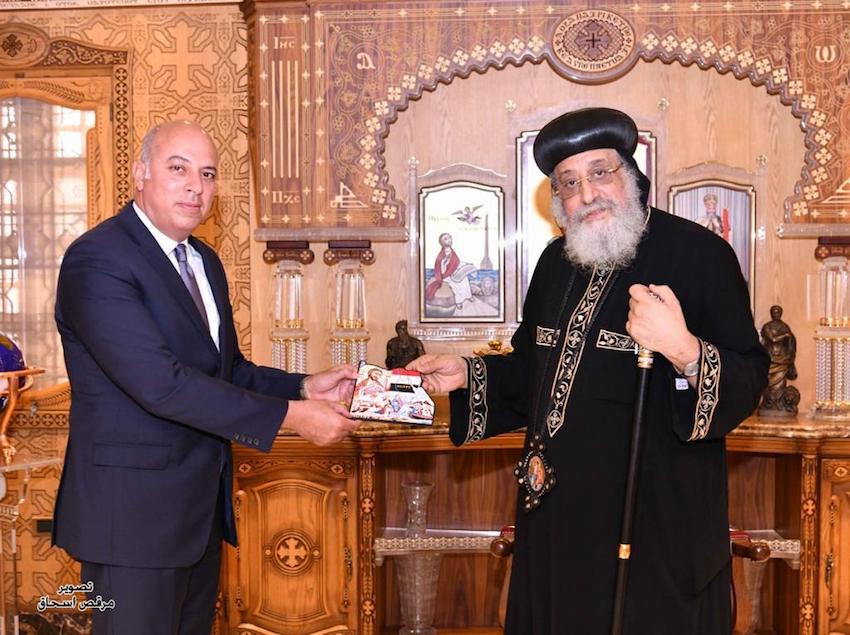
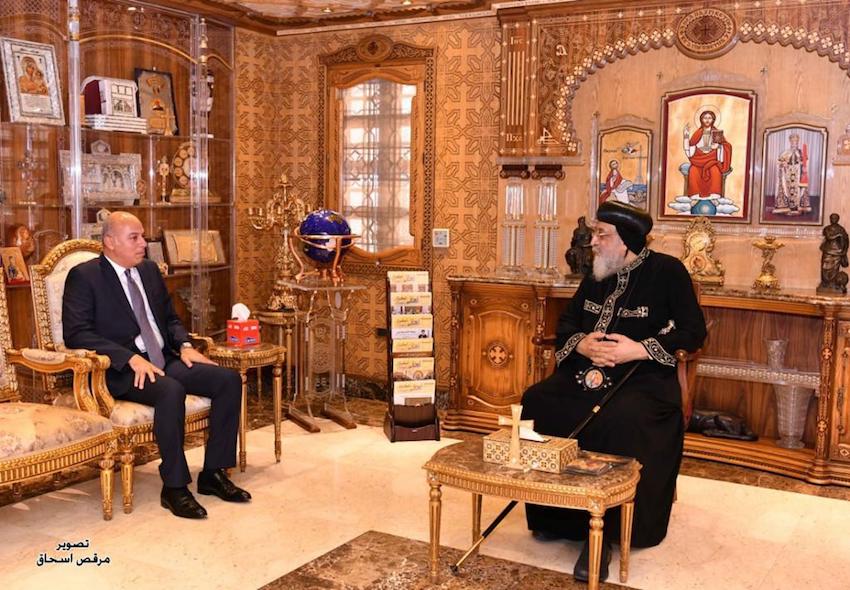
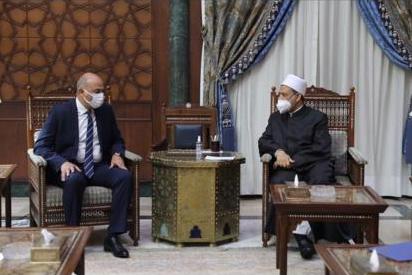
Climate change:
In his speech, at the 26th session of the United Nations Climate Change Summit “COP26” in Glasgow last year, President El-Sisi stressed that Egypt calls for the necessity of granting the African continent special treatment within the framework of the implementation of the Paris Agreement.
During the 2021 Glasgow Summit of the States Parties to the United Nations Framework Convention on Climate Change (UNFCCC), Egypt was chosen to host the next COP 27 Climate Summit to be held in Sharm el-Sheikh, where it will speak on behalf of Africa and will work on defending the African interests.
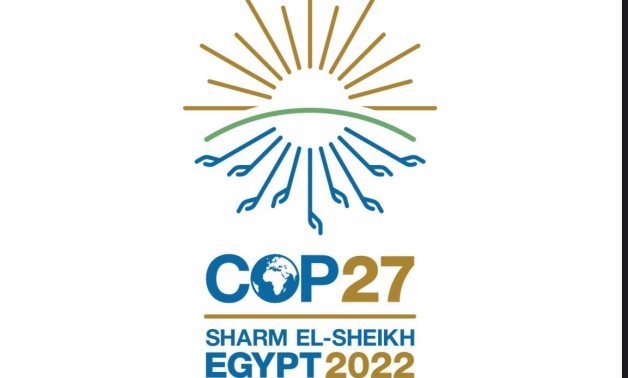

Tell us please about Your professional-diplomatic career. What are Your goals as Ambassador in Hungary?
– I joined the Ministry of Foreign Affairs in May 1995 and started to work at the legal department. My first post was in The Hague, the Netherlands (2000-2004). Afterwards I worked in the Cabinet of the Minister of Foreign Affairs, then I was transferred to the Egyptian Mission to the United Nations in New York (2007-2011). In 2011, I joined the Foreign Minister’s Cabinet for the second time (2011-2015), then in 2015 I was posted for the second time to the Permanent Egyptian Mission to the United Nations in New York (2015-2019) where I was privileged to be in the Egyptian team, serving during Egypt’s Chairmanship in the Security Council.
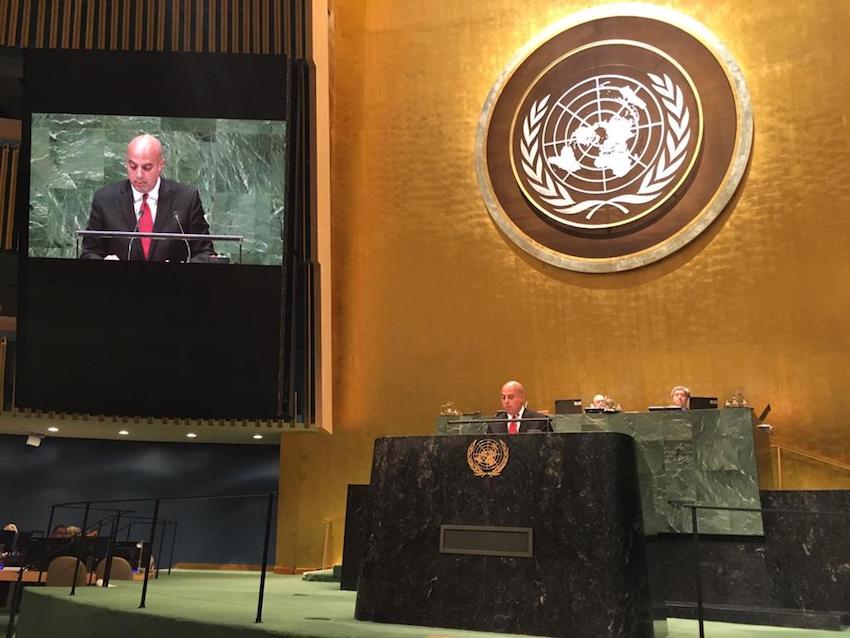

In 2019, and after finishing my term in New York, I worked for the third time in the Foreign Minister’s Cabinet as the Deputy Assistant Foreign Minister for Cabinet Affairs, then in 2021 I was appointed as an Ambassador to Hungary. As a diplomat, especially serving in the Egyptian foreign service, I feel honoured and privileged. I represent my country abroad and this is definitely a great responsibility that has to be carried out in a suitable way and my goal as Ambassador to Hungary is to continue the ongoing efforts to upgrade and improve the relations between Egypt and Hungary and elevate common understanding in most matters.






